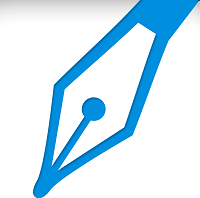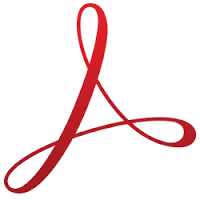Description

SIGNiX

SignEasy
Comprehensive Overview: SIGNiX vs SignEasy
SIGNiX Overview
a) Primary Functions and Target Markets
Primary Functions:
- SIGNiX is a digital signature and e-notary solution designed to facilitate the signing and notarization of documents online. It offers clients a range of services designed to ensure secure, legally binding digital signatures.
- It provides features like independent e-signatures, cloud-based solutions, document tracking, and compliance with e-signature laws like eIDAS, ESIGN, and UETA.
Target Markets:
- SIGNiX primarily targets industries that require high levels of security and compliance such as financial services, healthcare, real estate, government, and legal sectors. This makes it particularly appealing to organizations dealing with sensitive or regulated information.
b) Market Share and User Base
- SIGNiX has a specialized market share compared to larger e-signature companies. It tends to attract a niche user base that values security and legal compliance. Its user base includes medium to large enterprises and organizations that need robust compliance features.
c) Key Differentiating Factors
- SIGNiX differentiates itself mainly through its focus on security and compliance. The platform offers a higher degree of data protection, with features like encrypted signatures and document storage.
- Its ability to meet stringent industry regulations, including HIPAA for healthcare and IRS standards for government use, sets it apart from more generalist e-signature solutions.
SignEasy Overview
a) Primary Functions and Target Markets
Primary Functions:
- SignEasy provides an intuitive and user-friendly e-signature solution aimed at simplifying the signing process for both individuals and businesses. It facilitates electronic signatures on mobile devices and desktops, integrating with popular services like Google Drive, Dropbox, and OneDrive.
- Key features include the ability to sign documents on the go, request signatures from others, and perform document management tasks seamlessly.
Target Markets:
- SignEasy targets small to medium-sized businesses and individual professionals who require a straightforward and efficient way to handle document signatures without the need for complex integrations or enterprise-grade security features.
- It is popular among freelance professionals, sales teams, and small business owners who value simplicity and affordability.
b) Market Share and User Base
- SignEasy enjoys a broader appeal among individuals and small businesses, reflecting a larger user base in terms of numbers but occupying a less specialized market compared to SIGNiX.
- Its market share tends to be more significant in sectors where simplicity and ease of use are prioritized over deeper security integrations.
c) Key Differentiating Factors
- SignEasy’s primary differentiator is its user-friendly interface and ease of use. It allows users to sign documents quickly without requiring extensive technical knowledge or complex integrations.
- It is designed to cater to users who need mobile capabilities, making it a strong choice for users who frequently need to handle documents on smartphones or tablets.
- Price accessibility is another key differentiator, as it offers competitive pricing suitable for smaller budgets, unlike more specialized or enterprise-focused solutions.
Comparative Analysis
- Market Focus: SIGNiX is more focused on compliance-heavy industries and enterprises, while SignEasy caters to individuals and small to medium-sized businesses.
- Complexity vs. Simplicity: SIGNiX offers complex solutions tailored to industries with stringent regulatory requirements; SignEasy excels in providing a simplistic, mobile-friendly interface for everyday use.
- User Base Volume: SignEasy’s broader appeal to smaller entities results in a larger overall user base, while SIGNiX, with its niche appeal, tends to attract fewer but larger clients seeking premium features.
Contact Info

Year founded :
2019
+44 845 491 8710
Not Available
United Kingdom
http://www.linkedin.com/company/signixuk

Year founded :
2010
+1 866-965-1533
Not Available
United States
http://www.linkedin.com/company/signeasy
Feature Similarity Breakdown: SIGNiX, SignEasy
When comparing SIGNiX and SignEasy, both of which are electronic signature solutions, there are several aspects to consider:
a) Core Features in Common:
-
E-Signature Capabilities:
- Both platforms provide robust electronic signature functionalities, allowing users to send, sign, and manage documents electronically.
-
Document Management:
- Users can upload, store, and organize their documents securely on both platforms.
-
Authentication and Security:
- They both offer advanced security measures, including authentication processes to verify signer identities and audit trails to document the signing process.
-
Integration Options:
- Both solutions offer various integrations with popular third-party applications, such as cloud storage services (Google Drive, Dropbox) and productivity tools (Microsoft Office, G Suite).
-
Mobile Access:
- SIGNiX and SignEasy provide mobile applications that allow users to sign documents on the go.
-
Template Management:
- Users can create and save document templates for frequently used forms and contracts.
b) User Interface Comparison:
-
SIGNiX:
- SIGNiX generally has a more corporate-focused interface. It emphasizes security and compliance features upfront, as it is often used in industries with stringent regulatory requirements. The UI may appear more complex due to advanced features related to security and compliance.
-
SignEasy:
- SignEasy tends to offer a more user-friendly and streamlined interface. It's designed for quick adoption, often appealing to small to medium-sized businesses and individuals. The platform prioritizes ease of use and intuitive design, which may be more accessible for users seeking simplicity and efficiency.
c) Unique Features:
-
SIGNiX:
- Digital Signature Technology: SIGNiX uses a patented digital signature approach, which applies a unique digital certificate to each signed document, ensuring the highest level of security and compliance, especially suited for industries like healthcare and finance.
- Compliance and Security: SIGNiX is widely recognized for its compliance with rigorous industry standards, such as HIPAA, making it a preferred choice for heavily regulated industries.
-
SignEasy:
- Ease of Use and Fast Onboarding: SignEasy is known for its rapid onboarding process and ease of use, making it suitable for individual professionals and smaller businesses that need to get started with minimal training.
- Multilingual Support: SignEasy supports multiple languages, making it more accessible for global users.
- Price Point: SignEasy tends to have a more straightforward pricing model that might be attractive to smaller businesses or individuals with limited budgets.
Each platform brings unique strengths depending on user needs, industry, and regulatory requirements. SIGNiX is often chosen for its strength in security and compliance, while SignEasy is favored for its simplicity and ease of use.
Features

Not Available

Not Available
Best Fit Use Cases: SIGNiX, SignEasy
When considering digital signature solutions like SIGNiX and SignEasy, it's important to understand their features, strengths, and the specific needs of businesses or projects that would benefit most from each. Both platforms aim to simplify the process of obtaining digital signatures, but they cater to different use cases and industries.
SIGNiX
a) Best Fit Use Cases for SIGNiX
-
Healthcare and Life Sciences:
- SIGNiX is particularly well-suited for industries that have stringent compliance and security requirements, such as healthcare. Its digital signature solution supports compliance with regulations like HIPAA, making it ideal for handling sensitive patient documents or medical records.
-
Legal and Financial Services:
- For businesses that require a high level of trust and legality in document handling, such as law firms or financial institutions, SIGNiX’s solutions provide features like independent, third-party verification of signatures. This ensures legality and non-repudiation.
-
Large Enterprises and Corporations:
- SIGNiX is a robust solution for large companies that need advanced authentication and comprehensive audit trails. Its infrastructure is designed to handle high volumes of documents securely and efficiently.
-
Government Agencies:
- Government entities looking for highly secure and regulation-compliant digital transaction solutions can benefit from SIGNiX's capabilities, making it suitable for contracts, permits, and other official documentation.
SignEasy
b) Preferred Scenarios for SignEasy
-
SMBs and Startups:
- SignEasy is an excellent choice for small to medium-sized businesses and startups seeking an intuitive and user-friendly solution with minimal complexity. It offers a straightforward setup and ease of use, which is advantageous for companies with limited IT resources.
-
Remote and Mobile Workforces:
- With its strong emphasis on mobile accessibility and integration, SignEasy is ideal for businesses with remote teams or sales forces that require the ability to sign and send documents on the go via smartphones or tablets.
-
Real Estate and Sales Transactions:
- SignEasy’s ease of use and quick turnaround make it a favorite among real estate professionals and sales teams who need signatures on contracts and agreements efficiently and on the spot.
-
Freelancers and Independent Contractors:
- For freelancers and independent contractors who need simple signing solutions without complex enterprise features, SignEasy provides an affordable and effective way to manage contracts and client agreements.
d) Catering to Different Industry Verticals or Company Sizes
-
SIGNiX: Designed to cater to industries requiring high compliance and security, SIGNiX fits well with larger enterprises and sectors like healthcare, legal, financial services, and government. Its focus on regulatory compliance and advanced security features make it suitable for industries where legal validity and audit trails are crucial.
-
SignEasy: Tailored for flexibility and ease of use, SignEasy is versatile enough to meet the needs of various industries with more straightforward use cases. It appeals to SMBs, real estate, remote work environments, and freelancers, providing a solution that balances functionality with accessibility and affordability.
By evaluating the specific needs of your business or project against the strengths of these platforms, you'll be able to choose the service best suited to your requirements.
Pricing

Pricing Not Available

Pricing Not Available
Metrics History
Metrics History
Comparing teamSize across companies
Conclusion & Final Verdict: SIGNiX vs SignEasy
When deciding between SIGNiX and SignEasy, it's important to consider the unique features, pricing structures, scalability, and usability of each product to determine which one offers the best value for your specific needs.
Conclusion and Final Verdict:
a) Best Overall Value:
- SignEasy tends to offer the best overall value for individuals and small businesses looking for an easy-to-use, cost-effective solution. Its straightforward pricing and user-friendly interface make it ideal for users who require basic e-signature functionalities without the complexity.
- SIGNiX, on the other hand, offers more robust security features and compliance options, making it a better choice for industries that require high-security standards, such as healthcare and finance. Therefore, for enterprises or organizations with stringent security needs, SIGNiX might present greater value.
b) Pros and Cons:
SignEasy Pros:
- User-friendly and intuitive interface.
- Quick setup and implementation.
- Cost-effective pricing plans for small businesses and individual users.
- Good integration capabilities with popular cloud storage solutions and productivity apps.
SignEasy Cons:
- Limited advanced features compared to more comprehensive solutions.
- Not as robust in terms of compliance and security features.
SIGNiX Pros:
- High-security standards suitable for regulated industries.
- Strong compliance with legal and industry standards (e.g., HIPAA, FINRA).
- Advanced authentication methods ensure document integrity.
- Offers a comprehensive audit trail for transaction verifications.
SIGNiX Cons:
- Can be more complex to set up and use, potentially leading to a steeper learning curve.
- Higher cost, which may not be feasible for smaller businesses with limited budgets.
c) Specific Recommendations:
-
For Individuals and Small Businesses: SignEasy is recommended for its simplicity and affordability. If your business doesn't require advanced security or compliance features, SignEasy's straightforward functionality and competitive pricing will meet your needs effectively.
-
For Large Enterprises or Regulated Industries: SIGNiX is better suited for businesses that handle sensitive information and require a high level of security and compliance. Its advanced security features and compliance adherence make it ideal for industries like healthcare, finance, and legal sectors.
Ultimately, the decision between SIGNiX and SignEasy should be based on your specific business requirements, budget constraints, and the level of security and compliance needed for your electronic signature processes. Evaluate your use case carefully and consider leveraging free trials or demos to better understand how each solution aligns with your needs.
Add to compare
Add similar companies




